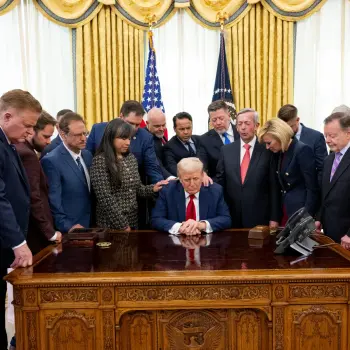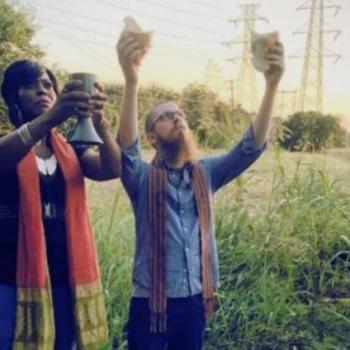Well. Ooops.
As Benedict XVI's papacy has unfolded quite differently than was predicted, we can look back upon these and other dire predictions and report that -- thus far, anyway -- Benedict has not thrown his head back to bare his fangs. No iron maidens have been commissioned for the new inquisition. He has poured no kerosene on the teeming bonfires of American culture. The soft-spoken, multilingual, piano-playing, book-loving octogenarian has proved himself to be a peaceable and pastoral shepherd, one who likes to talk and to listen, but to do both while resolutely teaching the faith throughout the age, rather than spreading the age throughout the faith.
Pope Benedict's encyclicals have been Christ-centered exhortations to love, to hope, and to truth. There has been no bull whip cracking down, only a gentle issuing of an invitation to ponder the Eternal and to fit ourselves into the plan God has for each of us in our spheres.
Because the current age prefers God to fit into its plans rather than the reverse, Benedict is preaching a radical message that he knows many -- blessed with free will and beholden to the age -- will reject. Far from displaying an "enforcer" mentality, the pope accepts that rejection with pragmatism and ultimately with trust. "The Church," he said as Joseph Ratzinger, "will become small, and will to a great extent have to start over again. But after a time of testing, an internalized and simplified Church will radiate great power and influence; for the population of an entirely planned and controlled world are going to be inexpressibly lonely . . . and they will then discover the little community of believers as something quite new. As a hope that is there for them, as the answer they have secretly always been asking for."
Papa Ratzi must find it heartening that, contrary to Sr. Chittister's doomsaying, vocations to the priesthood and religious life are on the increase, worldwide, as a new generation looks for the radical turn away from "whatever . . ."
During his brief stay in the United States, Benedict's schedule was full. He met the President and the press; he conferred with Catholic educators and met with representatives from other religions - and with injured members of his own. He celebrated masses and pray at Ground Zero, and spoke speak to the United Nations. Aside from reaching out to his own flock, one constant of Benedict's papacy has been his willingness to engage Islam and to challenge it, too. He will likely do that again.
Nothing in his pontificate thus far suggests that Benedict will be doing any of that while banging a shoe on a desk, burning witches, or wrapping a woman in a burqa against her will. The press has mostly has softened its tone on this "interim pope" who, presumably, will not reign for decades. Still, for the remainder of his pontificate we will undoubtedly continue to hear the continuing narrative and tired clichés about "hard-liner" Benedict's failure to unite his "divided flock," and stale laments about "what the Church needs to do if it is to survive" from the usual corners.
As Benedict, who is all right with sustained narratives, might say, "whatever . . ."
(This originally appeared at Pajamas Media. It has been slightly updated.)





